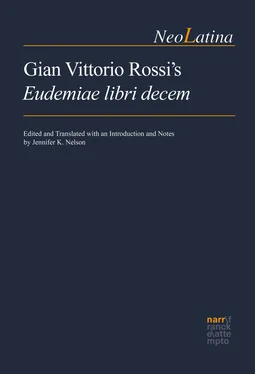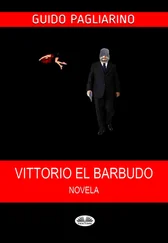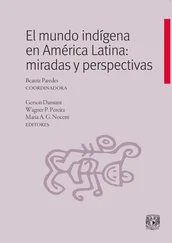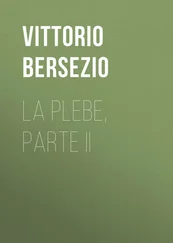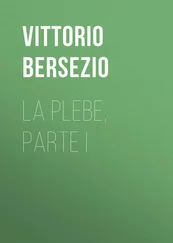LuciliusLucilius Gaius’s poetry, which survived only in fragmentary form, is known primarily through HoraceHorace’s two books of satires, but also through the satires of PersiusPersius and JuvenalJuvenal. A citizen of Republican Rome, member of the equestrian class, and friend of ScipioScipio Africanus Aemilianus, Lucilius famously “gave free rein to his pugnacious temperament, attacking Scipio’s political enemies, his own literary opponents, and anyone he happened to dislike.”4 In the satires of Horace, Persius, and Juvenal—reflecting a period of time spanning the late republic and early empire—Lucilius served as a model of freedom of speech that could only be aspired to by later authors, but that could not be emulated on account of the changed political situation.5
As Niall Rudd explains regarding HoraceHorace, “In 39 B.C. as a pardoned Republican and a man of no social consequence he could not afford to give indiscriminate offense.”6 PersiusPersius and JuvenalJuvenal, who were writing, respectively, under the emperors Nero and Domitian (at least for Juvenal’s early satires), were constrained by a similar lack of libertas that found a creative outlet in satire. Additionally, although libertas is not an overt theme in the Satyricon , the novelistic genre—the fantastical voyage in the comic tradition—enabled PetroniusPetronius Arbiter to comment, albeit obliquely, on his own society.7 More than 1,500 years separated RossiRossi, Gian Vittorio from his ancient models, of course, yet he nevertheless composed his satire in similarly restrictive circumstances. Living in Rome under the absolutist rule of Pope Urban VIIIUrban VIII, Pope, and within the constraints of the Counter-Reformation, finding one’s works on the Index of Prohibited Books was a real danger, and running afoul of orthodox views was a risky proposition.8
A useful lens through which to view RossiRossi, Gian Vittorio’s insertion of his work into the two satiric traditions, as well as his invocation of libertas , is what Howard WeinbrotWeinbrot, Howard D. terms the “harsh” and “soft” modes of satire.9 Menippean satire is generally characterized as falling within the harsh mode; that is to say, it is an attack on societal vice via the slanderous mocking of people and customs. The verse satire of LuciliusLucilius Gaius, famous for its “censorious ridicule,”10 is another example of this harsh mode. HoraceHorace, on the other hand—the verse satirist Rossi cites most frequently throughout his body of work—presented a soft mode of satire that eschewed personal attacks and offered a moral corrective by praising virtue.11 In his letter to MazzeiMazzei, Carlo, Rossi implies that, with Eudemia , he wants to have it both ways. On the one hand, he claims to be part of a long line of free speakers stretching all the way back to Lucilius, choosing as his most overt model the harsh genre of Menippean satire; on the other hand, he exhorts his readers to view him as a soft-spoken, latter-day Horace, who, meaning no harm, is just trying to point out society’s flaws in a humorous way in order to expunge or correct them.
RossiRossi, Gian Vittorio’s soft, Horatian stance, which becomes fully expressed in his 1646 letter to MazzeiMazzei, Carlo, was not always in evidence. In fact, a close reading of Rossi’s correspondence over the entire publication process of Eudemia reveals that Rossi’s satiric persona underwent a consciously constructed transformation from harsh to soft as a strategy of self-defense in response to the reaction his satire generated.
In two separate letters to Giovanni Zaratino CastelliniCastellini, Giovanni Zaratino written in the early 1630s, RossiRossi, Gian Vittorio explicitly describes Eudemia as rendering humorous, yet accurate, depictions of his milieu: “This satire, or, if you will, this history, which is what I call it”12; and “My satire—or rather my history … for although I sprinkled my stories with made-up elements, they are true and they happened during my lifetime.”13 Rossi’s conflation of history and satire underscores what GriffinGriffin, Dustin H. describes as the genres’ shared referential nature and rhetorical purpose: “Like the satirist, the historian distinguishes between the virtuous and the wicked, and perpetuates the memory of both.”14
RossiRossi, Gian Vittorio’s insistence on the truth of his satire also calls to mind another literary model for Eudemia in the harsh mode, which he does not overtly acknowledge: LucianLucian of Samosata’s Ἀληθῆ διηγήματα ( A True Story ), in which a first-person narrator recounts the “true story” of his fantastical voyage to fictional lands.15 Unlike Lucian’s narrator, who destabilizes his narrative from the outset by declaring that he is a liar who is “writing about things which I have neither seen nor had to do with nor heard from others,”16 Rossi puts himself forward as a truth teller whose historia , he insists, is based on things that actually happened. While he might be saying this for rhetorical effect, demonstrating his familiarity with Lucian’s tale, his claim to truth telling is nevertheless borne out by the fact that, unlike Lucian’s fantasy landscapes—peopled with strange creatures and characters from ancient history and mythology—Rossi’s Eudemia presents characters who can, to a large extent, be traced to Rossi’s circle of friends.
In the same letters to CastelliniCastellini, Giovanni Zaratino, referenced above, RossiRossi, Gian Vittorio tells his friend that he was encouraged to publish his satire and that the censors “were said to have enjoyed both the subject and the style, and did not deem it unworthy of publication.”17 But communications immediately following Eudemia ’s 1637 publication indicate that its reception was not entirely positive. Particularly relevant are two letters, both from the year 1638, to Cardinal Francesco BarberiniBarberini, Francesco (dated March 31) and to Clemente MerlinoMerlino, Clemente, judge of the Roman Rota (dated October 25), each of which reads like an apologia for the novel.18 The common theme of these letters is Rossi’s desire to mitigate any offense caused by his satire. In both of them he attempts to distance himself from his work, while at the same time standing by his use of humor to expose and expunge immoral behavior. The seeds of the rhetorical defense that Rossi would put forth eight years later, in his letter to MazzeiMazzei, Carlo, are found in these early justifications.
After an initial (and implausible) denial that he was the author of Eudemia ,19 RossiRossi, Gian Vittorio’s letter to Cardinal Barberini addresses complaints he heard about his satire being “pernicious, corrupting of morals, and damaging to the dignity and reputation of those associated with the [papal] court.”20 Rossi stresses that his book is a work of fiction, that it does not refer to any real people, and that only a person of ill will would associate the morally questionable characters in his satire with anyone in real life (a statement that is a complete reversal of his earlier claims to truth-telling). Most importantly, he makes the case that he is not narrating acts of immorality in a witty and elegant manner in order to praise such acts, but to make fun of them, or rather, to hiss at them and drive them away.21 Rossi is not yet explicitly referencing HoraceHorace’s corrective laughter, but this is certainly implied.
RossiRossi, Gian Vittorio’s letter to Clemente MerlinoMerlino, Clemente is longer and more substantial, putting forth a detailed rationale for his satire (“totam libri mei rationem”). His letter builds to a defense from an initial posture of distancing and minimizing, in which he claims that the satire was not his idea; his friends made him write it; it was meant to be seen only by a few people; and it merely consists of “ridiculae fabellae” (“ridiculous little stories”). For the first time, Rossi also introduces the notion, which he would go on to repeat on other occasions, that two books were left out of the 1637 edition, implying that these “missing” books would have clarified his intent or softened people’s reaction to it.22 By the end of the letter, Rossi embraces a full-throated defense of his use of satire to expunge immorality from society:
Читать дальше
